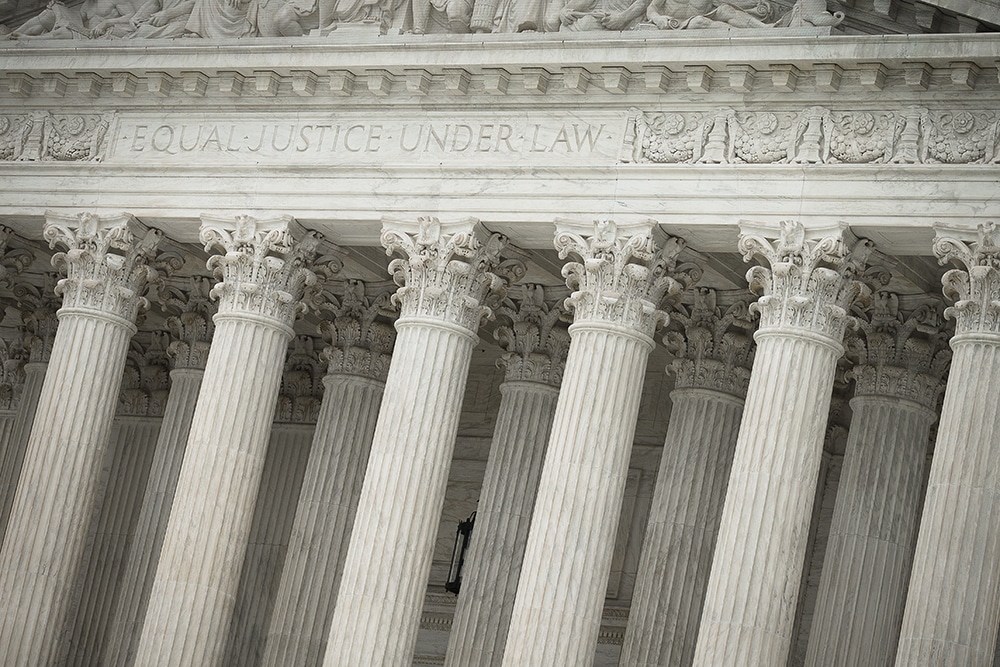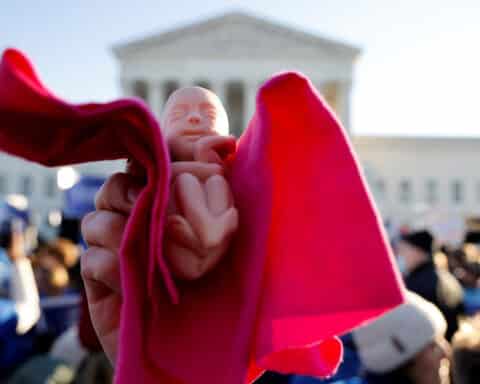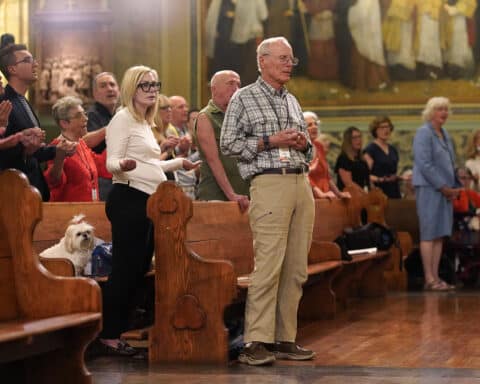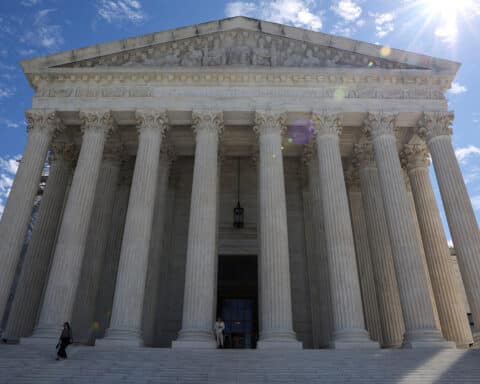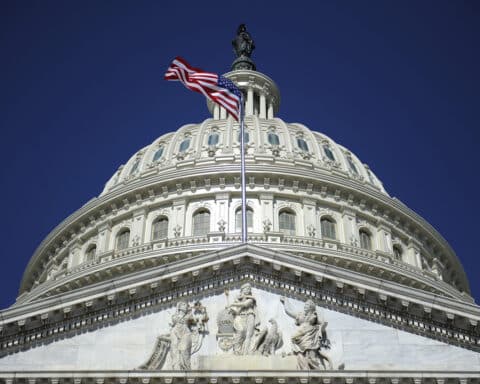Depending on what the Supreme Court eventually decides, the justices’ willingness to consider three cases pressing for new LGBTQ employment rights suggests challenges ahead for programs and agencies under religious auspices — such as parochial schools that decline to employ teachers in same-sex marriages. As they stand, the cases if successful would significantly expand federal enforcement of LGBTQ rights outside the religious sector.
The court agreed April 21 to consider the three cases but did not offer any comment on them. It will hear arguments on the three in its term that begins in October, with its decision or decisions most likely to be handed down early in 2020 — in good time, that is, to become issues in next year’s presidential campaign.
With one possible exception, none of the three cases directly raises the religious liberty issue. That could come later — and almost certainly would — in some other case or cases.
Interpreting Title VII
The Human Rights Campaign, a major gay rights advocacy organization, hailed the court’s willingness to review the three cases. “The impact of this decision will have very real consequences for millions of LGBTQ people across the country,” said the group’s legal director Sarah Warbelow.
In accepting the cases, the Supreme Court consolidated two of them — Altitude Express v. Zarda and Bostock v. Clayton County, Georgia — and they will be argued together. Both seek recognition of sexual orientation as a protected category under Title VII of the federal Civil Rights Act of 1964, which bars employment discrimination “because of sex.”
In Altitude Express, a skydiving company fired an instructor named Donald Zarda who then went to court claiming that firing him simply because he was gay was a violation of his Title VII right. A trial court disagreed and threw out the case, but the U.S. Circuit Court for the 2nd Circuit reversed the lower court’s ruling and held that discrimination based on sexual orientation is “a subset of sex discrimination.”
In the Bostock case, Gerald Bostock was fired by Clayton County, Georgia, from his job as a coordinator of child welfare services. The county accused him of mishandling funds, but Bostock said he was fired because he was gay. Bostock went to federal court, but the county argued that Title VII does not apply to sexual orientation; the district court agreed, and the U.S. Court of Appeals for the 11th circuit upheld that ruling.
The third case, R.G. and G.R. Harris Funeral Homes v. EEOC and Aimee Stephens, is the only one of the three in which a religious liberty issue is raised. It will be argued separately from the other two.
The central question in the case is whether Title VII applies to transgender persons. The case involves a Michigan funeral home whose owner, Thomas Rost, describes himself as a devout Christian. Six years after being hired, an employee named Aimee Stephens told Rost she wanted to wear women’s clothing to work. Rost then fired Stephens, believing that this would violate the funeral home’s dress code and permitting it would be “violating God’s commands.”
The federal Equal Employment Opportunity Commission filed suit on behalf of Stephens, and the U.S. Court of Appeals for the 6th Circuit ruled in favor of him and the commission.
The three cases are part of a growing line of Supreme Court cases in which competing interests have clashed over efforts to advance the LGBTQ agenda. As with their predecessors, it seems likely these three also will attract numerous friends of the court briefs from a variety of groups on both or all sides of the debate.
Bishops speak out
While all this is taking shape in the Supreme Court, it seems likely that action will be deferred in Congress on a bill being pushed by some House Democrats to add LGBTQ status to the list of protected categories recognized in the Civil Rights Act, the Fair Housing Act and several other federal statutes. The vehicle for accomplishing this (H.R. 5 in the House, S. 788 in the Senate) goes by the name of the Equality Act and has the backing of 161 corporate sponsors including Apple, Amazon, Google, IBM, Facebook and Twitter.
In Sarah Warbelow’s statement on the Supreme Court action, she put in a plug for the bill, saying that “regardless of the eventual outcome” in the court, “it’s critical that Congress pass the Equality Act to address the significant gaps in federal civil rights laws and improve protections for everyone.”
Last March, by contrast, the chairmen of three committees of the U.S. Conference of Catholic Bishops told Congress that the proposed legislation “does not accomplish what its supporters assert, but rather creates new difficulties and will hurt more people than its designers want to help.”
“Rather than offering meaningful protections for individuals … the Equality Act would impose sweeping regulations to the detriment of society as a whole,” said Archbishop Joseph E. Kurtz of Louisville, Kentucky, Bishop James D. Conley of Lincoln, Nebraska, and Bishop Frank J. Dewane of Venice, Florida. Archbishop Kurtz is chairman of USCCB’s religious liberty committee, Bishop Conley of its subcommittee for promotion and defense of marriage, and Bishop Dewane of its domestic justice and human development committee.
The three bishops warned that if it became law the Equality Act would compel many charitable services either to “violate their principles or shut down.”
“With the lack of gender criteria, shelters would be required to house vulnerable, sometimes traumatized, women with biological men [and] foster care and adoption agencies would be expected to place children with same-sex partners, regardless of some birth mothers’ wishes and children’s best interests,” they said, adding that the closing down of such services would be “unconscionable.”
The bishops said as Catholics they believe that “each and every person should be treated with dignity and respect.” But they complained that the proposed legislation “fails to recognize the difference between the person — who has dignity and is entitled to recognition of it — and the actions of a person, which have ethical and social ramifications.”
Russell Shaw is a contributing editor for Our Sunday Visitor.

